General Magic and Silicon Valley Common Wisdom
I strongly recommend General Magic, a documentary about the eponymous company, founded in 1990 with a clear vision of what smartphones could be, and how huge they could be. It built one of the most impressive teams in Silicon Valley’s history to make this vision a reality: its alumni went on to do things like building the iPod, iPhone or Apple Watch at Apple, becoming the first CTO of the US under Obama, or founding Android.
Their “smartphone” was decades ahead of its time, letting you do many of the things you can do today on the Web — like booking a flight ticket, doing email, or checking your calendar — before the Web even existed.
And that’s one of the key conclusions of the documentary: General Magic was too early, and their product too expensive, especially for the “Joe Sixpack” they were targeting. Their device sold poorly, and the company went out of business.
One thing I especially appreciated about this story is that it’s a great illustration of several principles that are now common wisdom in Silicon Valley — things like launch early, talk to your customers a lot, keep your product small…
And before I lay them out, I do want to recognize that what’s obvious today might have been anything but at the time. I still have an immense admiration for what General Magic tried to accomplish — hindsight is 20/20, and commenting is a lot easier than building.
1. Early is the same as wrong
When something fails, we’re fast to conclude it was a bad idea. But many ideas fail not because they’re dumb — they’re just too early. Marc Andreessen often points out that most of the poster children of the dotcom bubble’s exuberance could be successful companies today.
Two common examples are Pets.com, which sold pet supplies online, and Webvan, which delivered groceries. Both raised hundreds of millions in the early 2000’s, later to come down in a crash. To this day, folks still refer to them with a chuckle. “How people lose their minds in a bubble!” But both these ideas eventually did succeed, only 15 years later and in different companies — Chewy’s currently worth $10 billion, and Instacart $7 billion.
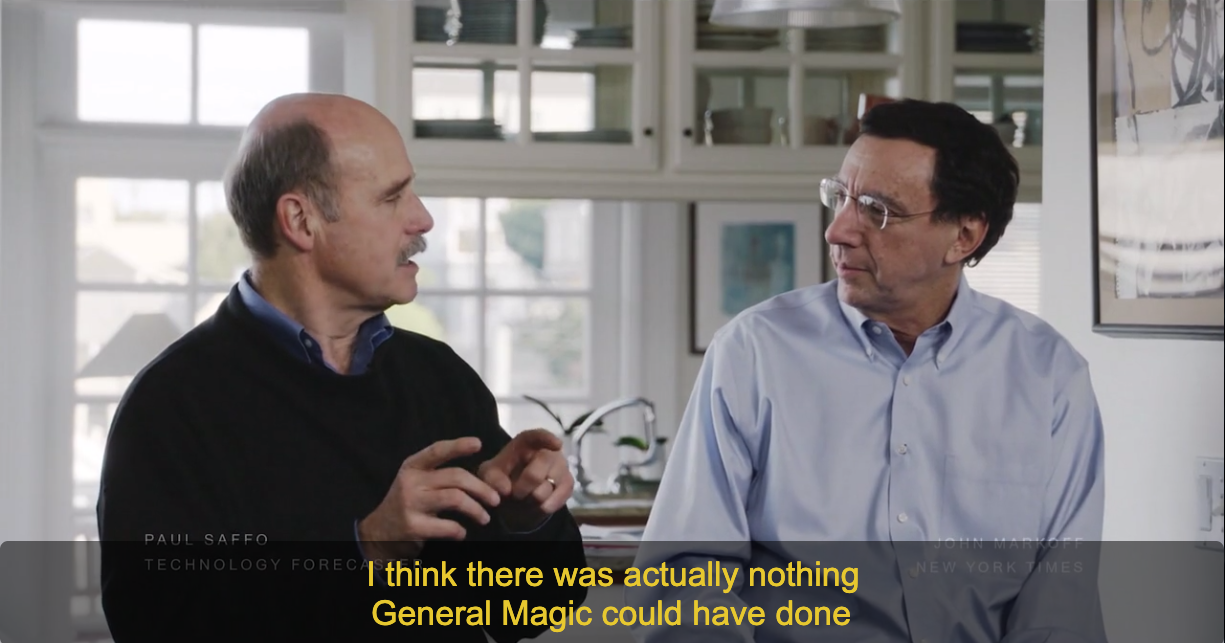
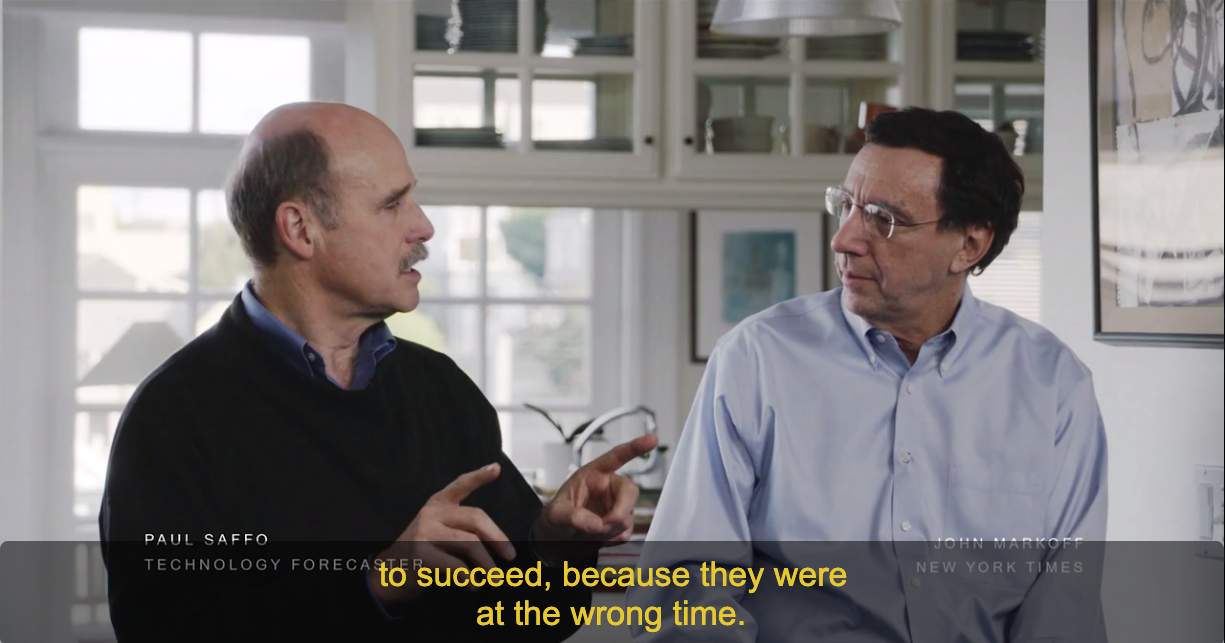
So I do think that poor timing was a big contributor to General Magic’s . But I don’t think it was as unavoidable as the movie makes it seem. Case in point is Palm, which had the same vision as General Magic, released their product just a year later, and was a commercial success. So why did General Magic fail where Palm succeeded?
2. Don’t try to boil the ocean
I think the key difference is that GM bit off more than they could chew, where Palm focused on a small, realistic product.
General Magic practically built their own mini Web in partnership with AT&T. Their phone let you do things like checking your email, reading the news, booking flight tickets, playing games… In comparison, the Palm Pilot 1000 looked like one of those personal organizers that kids would later go crazy about (or was it just me? I was a weird kid.) It had a total of four ”apps:” calendar, address book, notes, and todo list. That’s it.

“I think he’s a life hacker,” my mother said in a sob
In tech, this idea is captured in the concept of the Minimum Viable Product (MVP). Followers of the Lean Startup Church exhort entrepreneurs to build the very smallest product possible that can still be a business.
I feel ambivalent about this idea, which people often use to build bad products, or worse, become intellectually lazy. They’ll mis-interpret the concept of MVP as “there’s no point trying to predict the market’s reaction to your product! Just launch and see what happens!” But one of the most important jobs of a founder is to navigate their idea maze, which entails having a strong opinion on what the future can be, and how your startup can bring us there — not throwing a bunch of half-baked pasta on the wall and see what sticks.
I’d like to think there’s a happy medium between the MVP accolytes and companies like General Magic that try to boil the ocean. I think it would go something like this: come up with a big bold vision, be it only because it’ll make hiring easier. And then, take the smallest step towards that vision that still can be a business — but no smaller. I think it is Patrick Collison who said that moonshots are just a lot of pragmatic steps taken one after the other.
3. Talk to users
General Magic’s head of marketing described their target customer as “Joe Sixpack.” And they realized that “Joe Sixpack really doesn’t have email” only after their $1,300 (2019 dollars) smartphone hit the shelves.
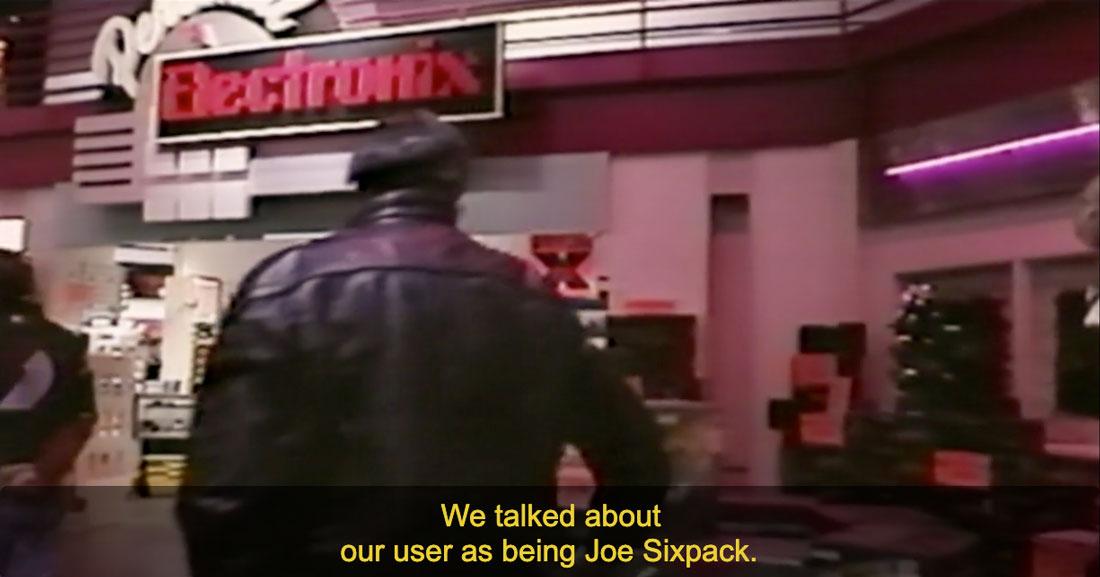
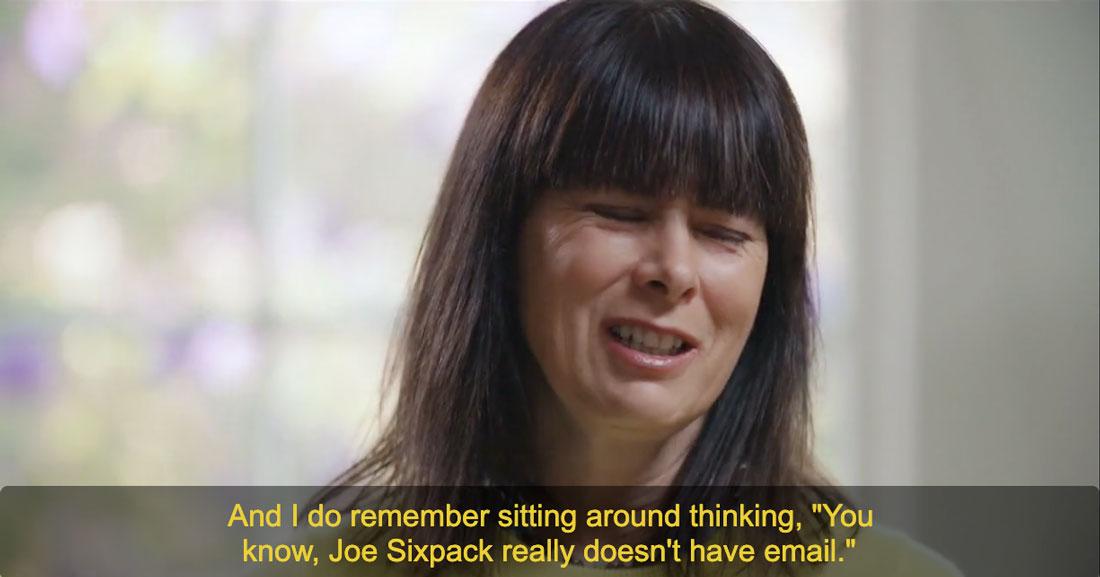
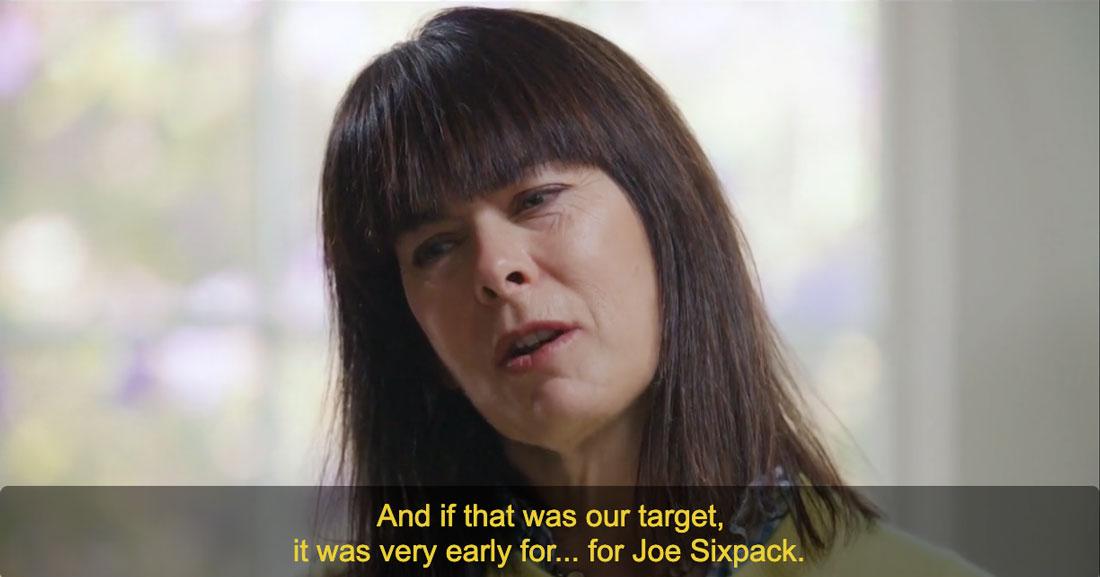
It seems like it was pretty late to make this realization, making me wonder if the General Magicians spent enough time talking to their users.
Lots of people think that “you can’t validate truly revolutionary ideas by talking to people.” They’ll go on to talk about Steve Jobs, or quote Henry Ford’s “if I’d asked people what they wanted, they would have said a faster horse.” (Ford never said that, and Apple does a ton of user research.)
And it’s true that deciding what to build is your job, not your users’. But the first step to solve a problem is to understand it deeply. And the best way to do that is to talk to your users, who are more familiar with the problem than anybody. The insight is often compressed as “talk to users about problems, not solutions.”
4. The importance of good managers
General Magic was one of those tech companies that didn’t believe in managers.
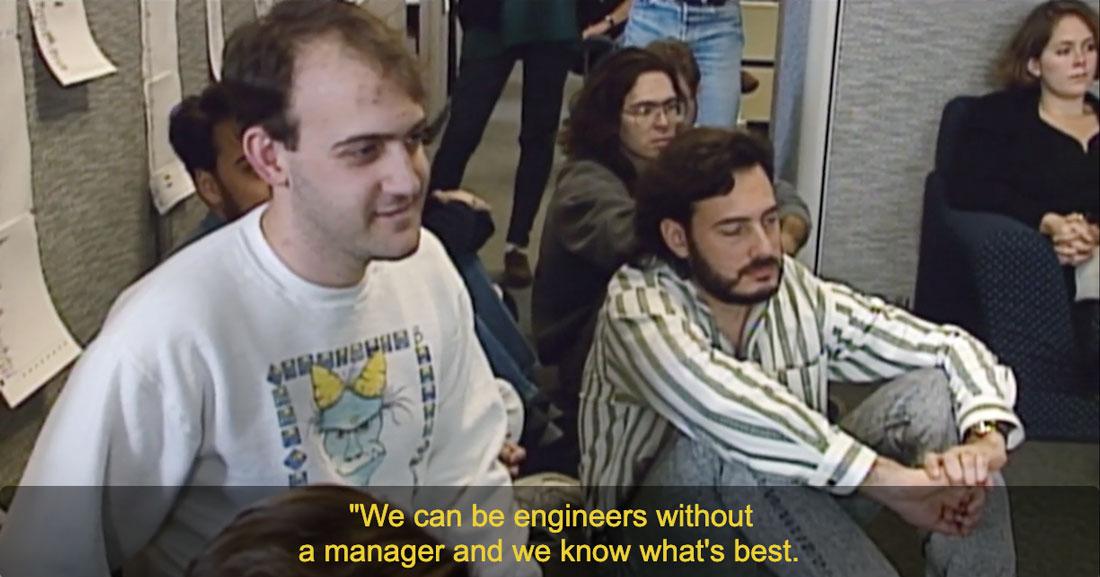
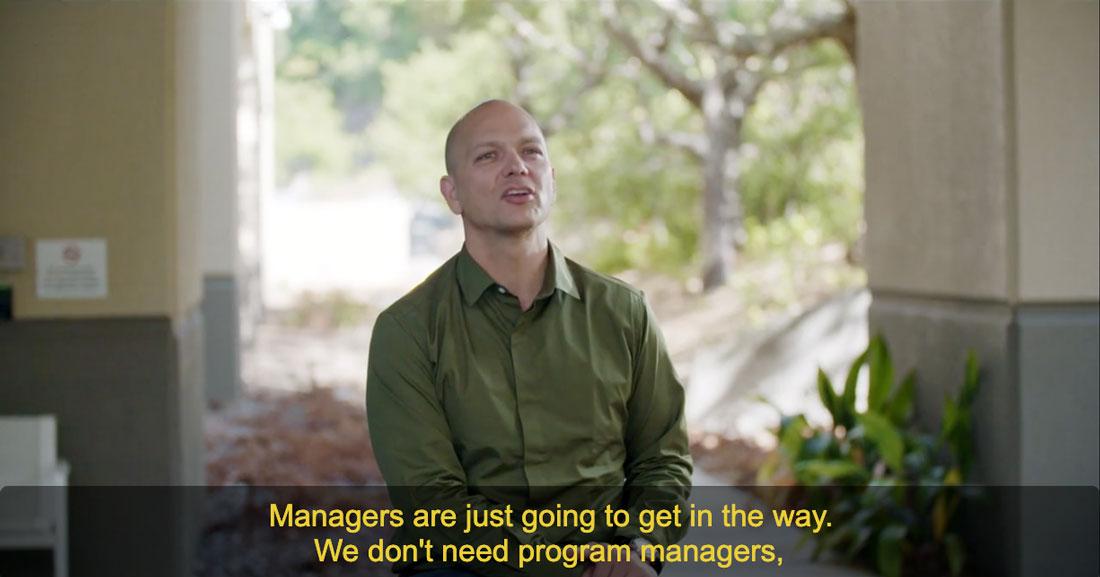
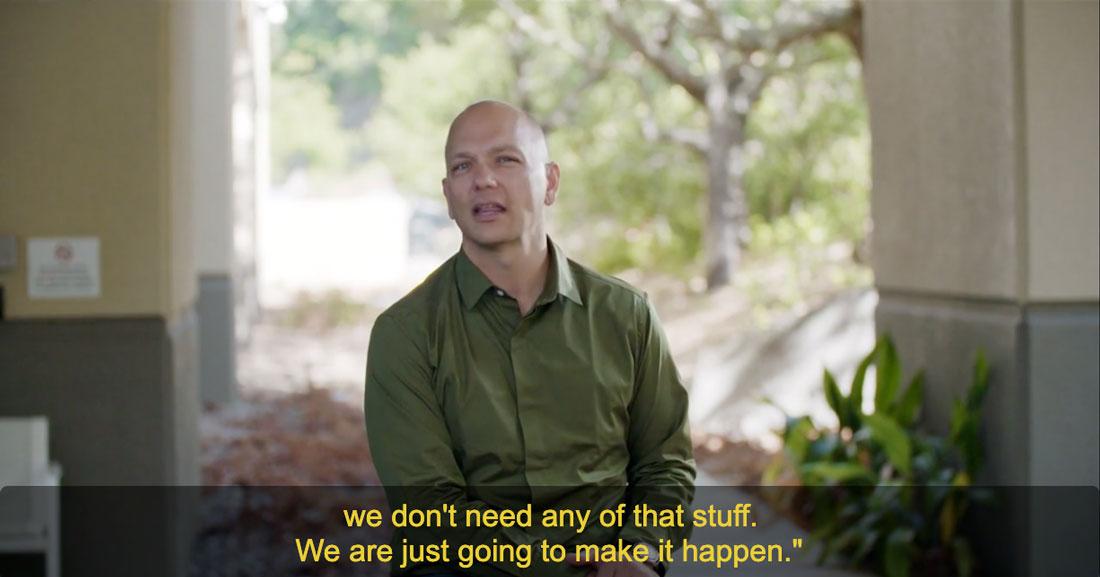
That they could ship such a huge product with no managers seems unbelievable, and speaks to the passion and talent of the General Magic team. But they still failed.
Now, this is going to be a bit self-serving, but one managerial function that I feel GM was especially lacking was Product Managers. All the points above — don’t be too early, ship a small product, talk to your users — knowing all this is really the job of a Product Manager.
Startups don’t need to hire PMs immediately. They have to remain scrappy, and founders need to learn about their users, market, and product — so they shouldn’t outsouce any of these in the beginning. But GM had hundreds of employees when they shipped, more than big enough to benefit from having PMs around.
5. Big companies ain’t your buddies
To their credit, General Magic realized they couldn’t pursue their huge vision alone. So they signed strategic partnerships with companies like Sony, AT&T, Motorola, Philips, Apple…
These partners brought credibility, expertise, and capital. But I think that they actually had a net negative contribution to General Magic. As a startup, there are three reasons why you may want to avoid partnerships with big companies.
First and most importantly, they slow you down. Big companies have too much time and money to waste. Speed is a startup’s biggest advantage, and it should be protected at all costs.
Second, big companies steal ideas. Initially, General Magic was very secretive about its work, which I think was a good idea — again, big companies have infinite money, and can get users from day one through their existing businesses. The only reason why they can still lose against three guys in a garage is speed, speed, speed. (This asymmetric race between startups and incumbents is sometimes summarized as: can the startup get distribution before the incumbent gets innovation?)
Startups can use every month of head start they can get in this race. So it was weird for GM to be so secretive, and then open their books to Apple — which did end up releasing a competing product, the Newton.
Third, these partnerships come with strings attached. For example, when the Web started blowing up, General Magic didn’t catch the train — in part because it was competing with AT&T’s walled garden.
Now, when you’re trying to get something off the ground, you can’t always decline the wads of cash some giant company is throwing in your general direction. But if you really have to deal with the devil, you should at least try to keep him at arm’s length.
6. What makes Silicon Valley special
The movie starts by asking: can you really call General Magic a failure?
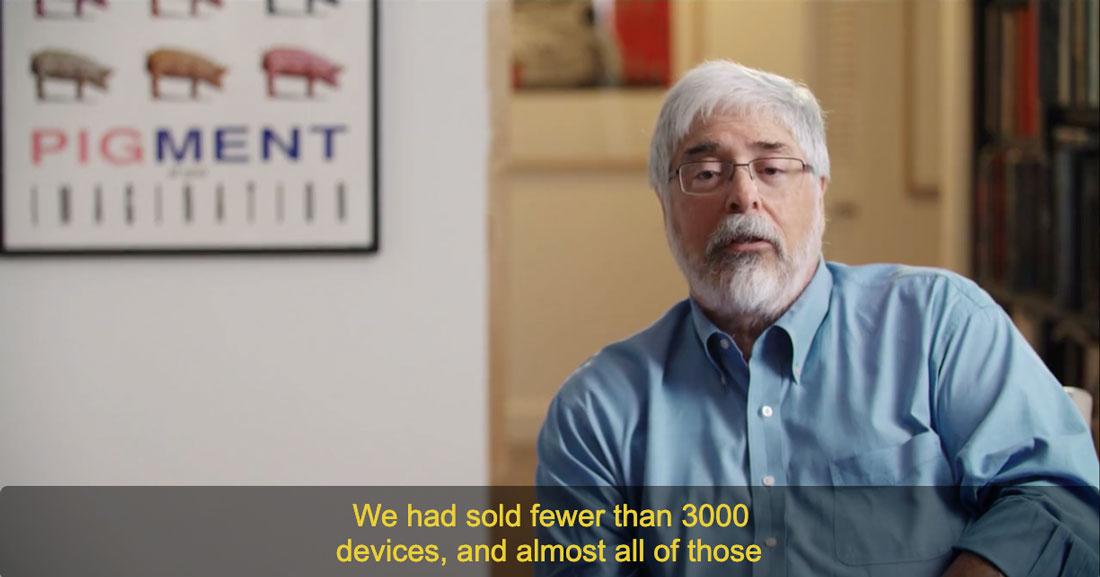
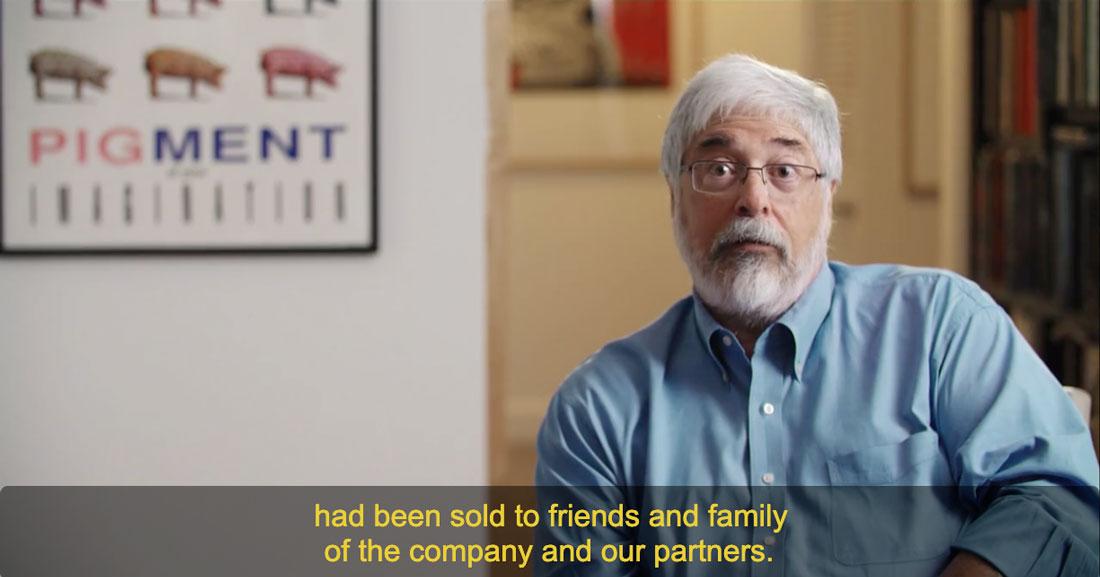
Sure, it went out of business after selling like 3000 units, mostly to their friends and cousins. But its vision did eventually become a reality.
And what a vision it was! You really can do everything with your smartphone. Take and see your tens of thousands of pictures; access the sum of human knowledge; listen to all the music and watch all the movies that exist; keep in touch with friends; read the news; play games; manage your business… The existence of just one of these devices would be a miracle of human ingenuity. That billions of people have gotten them, in just 10 years, is simply unprecedented — no product that impacts our lives so deeply has been adopted faster than the smartphone. It’s remarkable that General Magic could see all of this, this early.
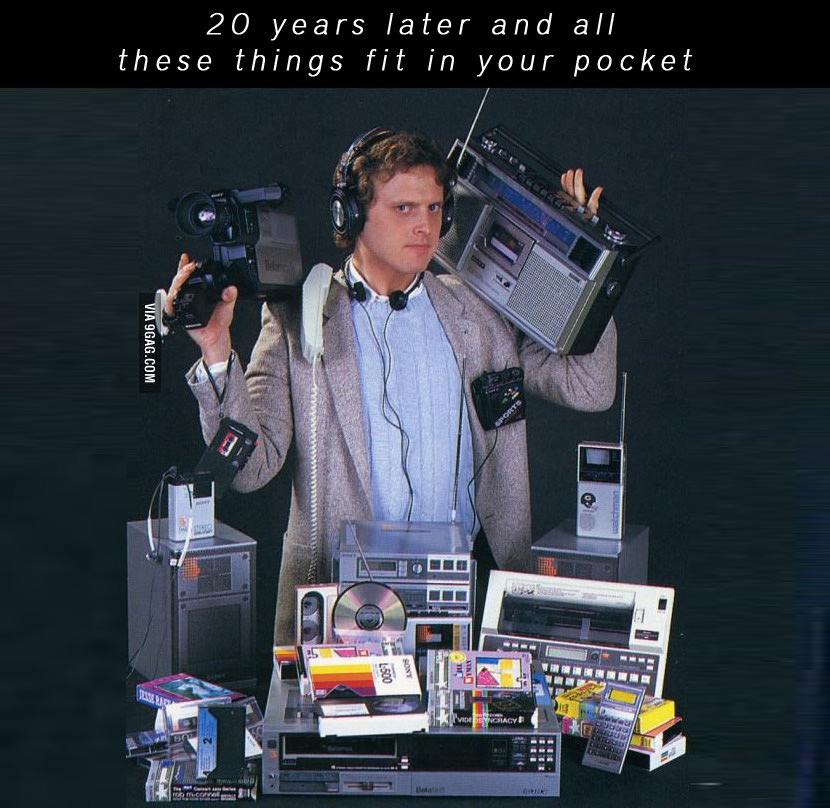
Not only was the vision prescient, two General Magic alumni had central roles in eventually making it a reality: Tony Fadell would go on to lead the iPhone project at Apple, and Andy Rubin would found Android.
So, General Magic did go out of business after spending hundreds of millions of dollars. But this money at least bought an expertise that came to good use, only 20 years later. Which I think points to a strength of Silicon Valley: its network is so tight, its opportunities so plentiful that no experience goes to waste. Your company goes down, and before you know it you get a phone call from Steve “Jesus” Jobs, asking you if you’d like to cross the street and take up your work where you left it. Economies grow through the buildup of human capital, and Silicon Valley is like the perfect machine to build that capital, accumulate it, and preserve it when things go wrong.
People here tend to take this from granted. But it does not happen everywhere.
Flo Crivello Newsletter
Join the newsletter to receive the latest updates in your inbox.
